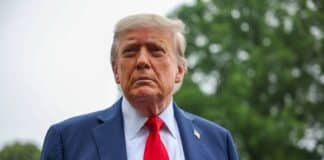Dwight Eisenhower famously said, “Plans are worthless, but planning is everything.” In other words, leaders must create a conceptual framework from which their policies and actions will flow.
The concept of “grand strategy” is a reference from which a nation’s historical, cultural, economic, diplomatic, and military thought is brought to bear to create a strategic synthesis. In confronting the threat posed by China, America needs a grand strategy that preserves our essential national sovereignty while embracing our inheritance of Britain’s strategic imperative to defend the freedom of the commons.
The English military theorist Sir Basil Liddell Hart once opined that “grand strategy forces policymakers to look beyond the war to the subsequent peace.” Without such a synthesis defining the national interest, policy-making is reactive, often haphazard, and always dangerous. We are then reduced to what President Obama summed up as his strategic outlook—“don’t do stupid sh**”—while muddling from crisis to crisis.
Assuming we want the U.S. to plan like Ike rather than flounder like Barack or Joe, where should we look for guidance? Often, it’s wise to begin at the beginning.
David Morgan-Owen argues that the modern concept of grand strategy arose not in the aftermath of the two great world wars but with the struggle of Imperial Britain to control the “Empire’s anxieties over its global security challenges.” This was particularly highlighted by Britain’s dealings with the emerging German Empire.
Even at the height of their ambitions in the late 19th century, Kaiser Wilhelm I and his chancellor, Otto von Bismarck, were haunted by Great Britain. On the European chessboard, the island kingdom, wielding its significant economic and military might with strategic flexibility, had already laid Napoleon low—a clear warning to Berlin.
During the Congress of Berlin in 1878, called to settle the aftermath of the Russo–Turkish War, Bismarck, whose armies had conquered Denmark, Austria, and France in less than a decade, would not even proffer a suggestion unless it had been blessed by Queen Victoria’s first minister, Benjamin Disraeli. Indeed, upon the old conjurer’s arrival at the Berlin summit, the usually laconic Bismarck yelled across the hall: “There is the Man!”
In 1904 Lord Esher, confidant of King Edward VII, contrasted the differences in strategic outlook between the global British superpower and its European-centric rival Germany. The issues confronting Berlin, he noted, were “simple and stable compared with those affecting our world-wide Empire, and they are purely military. There is, on the other hand, hardly any point on the earth’s surface which can change ownership, and certainly not a modification in the relative power of two foreign states, can take place without affecting the National Strategy of Great Britain.”






